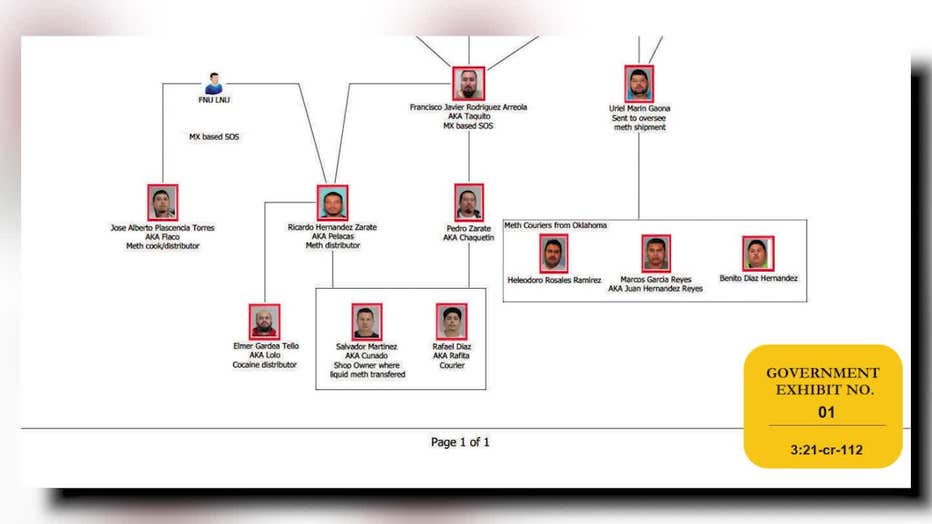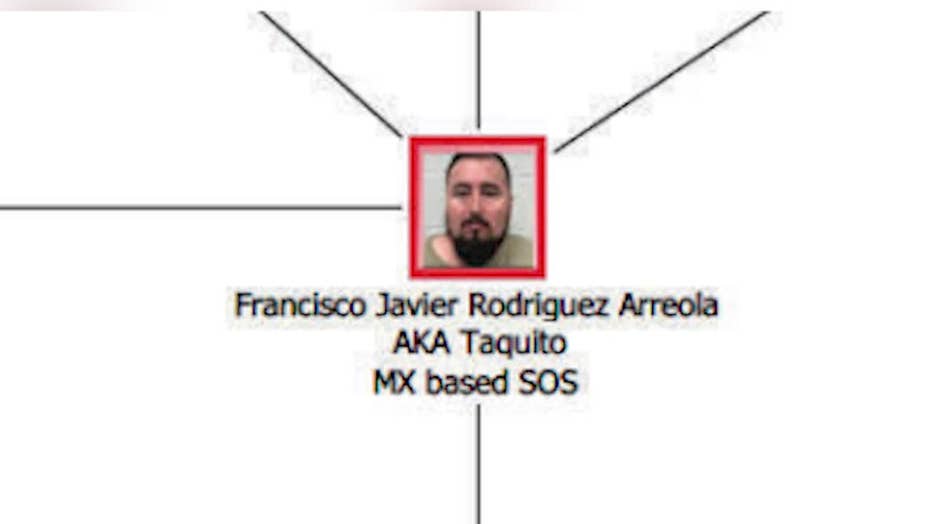12 cartel members sentenced after bringing $10M in meth from Mexico to Dallas
DEA on $10M meth bust, trafficking efforts
200 kilos of liquid methamphetamine, a street value of $10 million, found in the diesel tank of a semi-truck on its way from Mexico to Dallas.
The Drug Enforcement Administration says Dallas-Fort Worth is a hot spot for cartels and the way drugs are being hidden is becoming more creative.
"We have seen historically this evolution of how methamphetamine comes across the border," said Eduardo Chavez, the Special Agent in Charge of the Drug Enforcement Administration in North Texas.
U.S. Department of Justice evidence photos show liquid methamphetamine, some 200 kilos, a street value of $10 million, found in the diesel tank of a semi-truck on its way from Mexico to Dallas.
"What we have seen is just this increase in creativity when it comes to trying to traffic methamphetamine — and one of these ways is finished liquid methamphetamine just commingled for lack of better words with just another inert substance — it could be gasoline," said Chavez.
The liquid is usually later distilled and converted to solid form, according to DEA Special Agent in Charge Eduardo Chavez.
"We’ve seen it in clear type soft drinks and sparkling waters, where it just looks like it would be a sparkling water or mineral water, and it’s not the mineral water you’d want to drink. That’s for sure," said Chavez.

(Source: DEA)
12 Jalisco New Generation Cartel members connected to this recent investigation are now sentenced to federal prison. The top trafficker, 46-year-old Francisco Javier Rodriguez Arreola, a Mexican citizen, received a 40-year sentence on Tuesday.
Arreola previously spent time in federal prison and was deported to Mexico in 2020. Less than a month later, he was back in the drug trade. He was arrested in 2021, while illegally reentering the U.S.

He admitted he coordinated this shipment of liquid methamphetamine.
FBI agents connected him to multiple cartel operations.
"The Jalisco Cartel makes its mark with trafficking methamphetamine and fake fentanyl pills," said Chavez.
[REPORTER: "Fentanyl is probably still your number one issue y'all are facing right now."]
"By far the fentanyl and the fake fentanyl pills are the deadliest drug," Chavez replied.
The migrant surge at the southern border continues to spark conversations about drug trafficking, but the DEA says most major shipments enter legal entry points.
"The majority of illicit drugs that we see here in North Texas have come across primarily through two ways: commercial vehicle traffic and private passenger vehicle traffic coming across ports of entry. It does not make economical or fiscal sense from a trafficking organization to throw it on a bunch of people’s backpacks and, you know, and just hope for the best," Chavez said.
This investigation was led by the FBI with assistance from Texas DPS, Dallas PD, Fort Worth PD, DEA and more.

